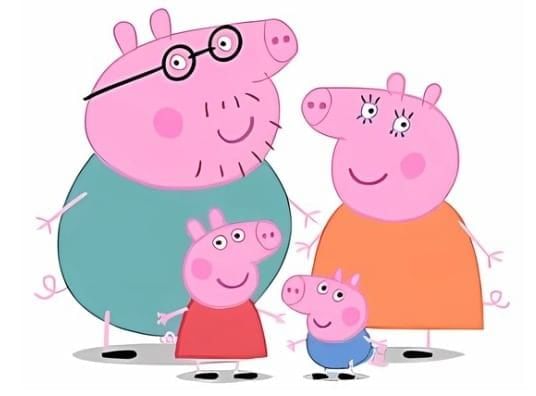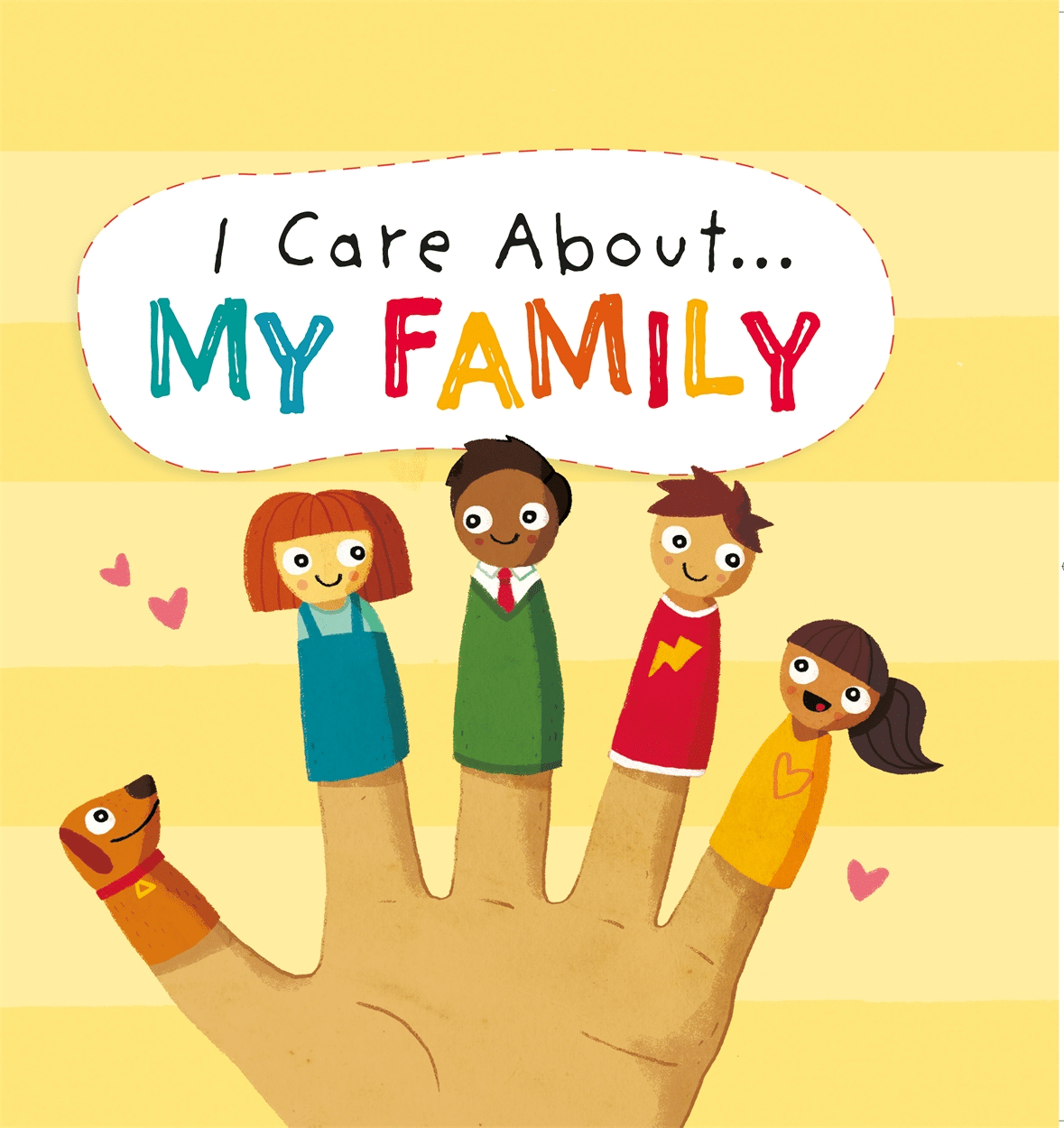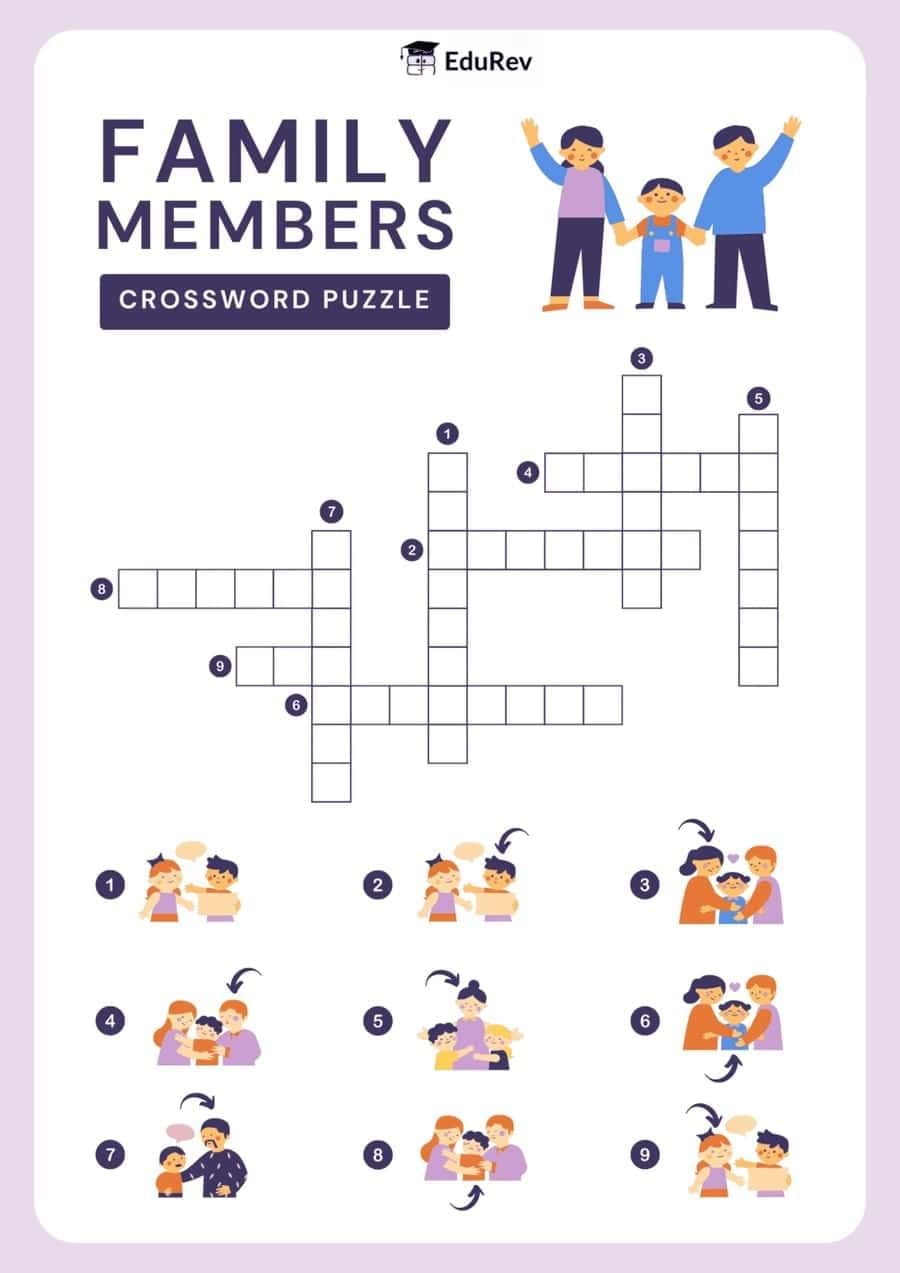My Family - 1 Class 1 Worksheet EVS
| Table of contents |

|
| Q1: Multiple Choice Questions (MCQs) |

|
| Q2: True or False |

|
| Q3: Answer in One Word |

|
| Q4: Crossword Puzzle |

|
 Peppa Pig's Family
Peppa Pig's Family
Q1: Multiple Choice Questions (MCQs)
Q1. Who cooks tasty food at home?
(a) Policeman
(b) Mother
(c) Teacher
(d) Postman
Q2. A family with only parents and children is called a…
(a) Small family
(b) Joint family
(c) Cousin family
(d) Big family
Q3. Who helps you in studies?
(a) Parents
(b) Postman
(c) Policeman
(d) Driver
Q4. Families celebrate…
(a) Homework
(b) Festivals
(c) Rain
(d) Market
Q5. Who is the father of your mother?
(a) Uncle
(b) Brother
(c) Grandfather
(d) Cousin
Q2: True or False
Q1. Family is a group of people who love and care for each other.
Q2. Grandmother is mother of your mother or father.
Q3. Families never help each other.
Q4. Brother and sister are called cousins.
Q5. Families eat food together.

Q3: Answer in One Word
(Answer the questions given below in one word.)
(i) What are brothers and sisters in a family known as?
(ii) What are people living together in the same house called?
(iii) Name any one family member.
Q4: Crossword Puzzle
Can you fill in this crossword puzzle? Use the images below the grids as clues.
You can see the solutions of worksheet here.
|
33 videos|215 docs|44 tests
|
FAQs on My Family - 1 Class 1 Worksheet EVS
| 1. What are the different roles family members play in a family? |  |
| 2. How can families improve communication among members? |  |
| 3. What activities can families do together to strengthen their bond? |  |
| 4. How do family traditions impact family relationships? |  |
| 5. Why is it important for families to spend quality time together? |  |





















